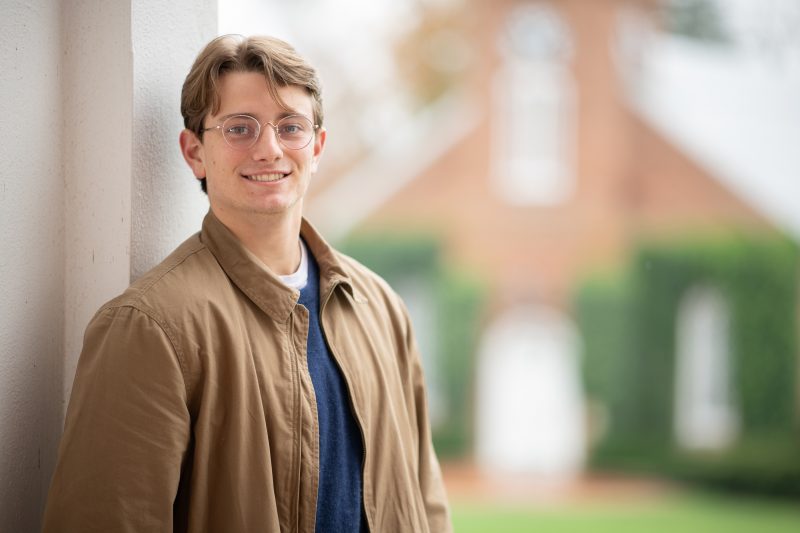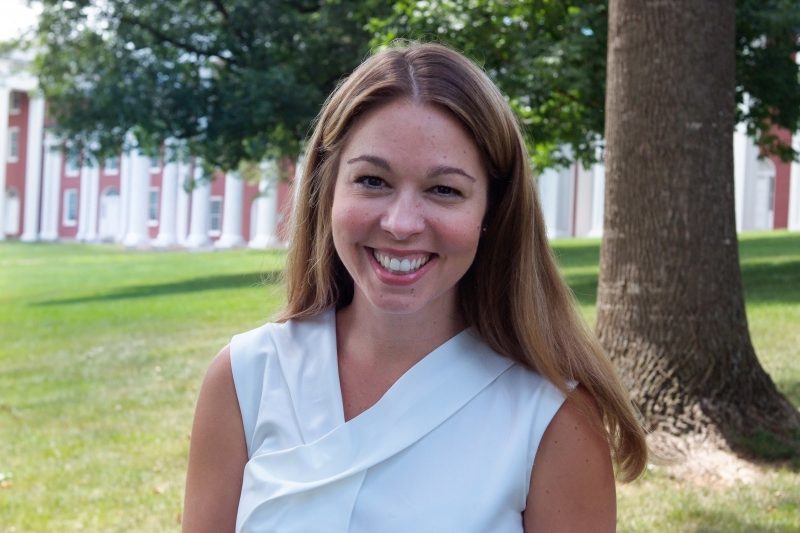Bringing Everyone to the Table Ben Capouya '20 interviews Victoria Kumpuris Brown '98 about her career in food policy and health at the Robert Wood Johnson Foundation.
“Health equity should be at the center of all exploration and new efforts here, making sure that new ideas and solutions are accessible for all and not just a smaller sub-component of the population.”
~ Victoria Kumpuris Brown ’98
Editor’s note: In this series, “Living the Shepherd Dream,” current students in the Shepherd Program for the Interdisciplinary Study of Poverty and Human Capability at Washington and Lee interview alumni of the program who are working in a field that interests both. Look for installments in this series once a month on The Columns.
Ben Capouya ’20, a business administration major and a poverty and human capabilities studies minor, does not know exactly how his postgraduate path will unfold. Last summer, Ben worked at the Atlanta Community Food Bank in Atlanta, Georgia. There, he helped the community garden department lead volunteer groups at the food bank’s donation gardens, as well as expand the impact of the Plant a Row For the Hungry Campaign. Additionally, he assisted the nutrition department with running classes that help senior citizens learn about and implement healthy ingredients and cooking methods into their cooking practices at home. He recently interviewed Victoria Kumpuris Brown ’98 to learn more about the postgraduate opportunities that deal with issues associated with food insecurity and health.
Q: Where do you work and what position do you hold there?
A: I am a senior program officer with the Robert Wood Johnson Foundation. The foundation is the largest philanthropy in the United States dedicated solely towards health. We have a roughly $11 billion endowment and give out around $550 million each year. The vast majority of our programming is done here in the United States. Our mission is to build a Culture of Health for all Americans, everywhere, no matter what. To achieve a Culture of Health you need to address traditional aspects of health and health care but also attend to the social and contextual aspects that shape our ability to be healthy. This means we literally think about ways we can positively impact where Americans live, work, learn, play and pray all with health equity at the center.
I spend most of my time thinking about ways we can help children and their families reach their fullest potential. I do a lot of work around food policy and ensuring affordable and broad access to healthy food and beverages. I also do a lot of work in creating healthy school environments by investing in the social and emotional well being of students.
The private sector is a big area of focus. To achieve a Culture of Health we must work with a wide variety of partners, the private sector being a critical stakeholder. We want to work with the private sector to harness their innovation and their ability to shape appetites and create our culture. I think about ways we can encourage them to create healthier products and produce healthier policies and programs that benefit their employees and the communities where they do business.
Finally, I am spending my time on two emerging areas of interest. First, the foundation has historically invested in helping communities rebuild after natural disasters. I have been working with a small team across the foundations to build resilience in the aftermath of Hurricane Harvey in Houston and Hurricane Maria in Puerto Rico, with a specific emphasis on behavioral health. I also lead several investments for our global portfolio. The foundation has a small set of global investments with the purpose being to support innovative programs from across the globe and bring those learnings back to the U.S. I have a series of investments around understanding how other countries have built a shared value of kids moving the populace from thinking about “my kids” to “our kids.”
Q: What postgraduate path brought you to where you are today? How did you decide what you wanted to do after completing your undergraduate education?
A: Mission-driven work has always been what I wanted to do. A lot of it is about how I was raised. I was brought up with an expectation that giving back was expected and valued. Caring about others and our democracy at large was a core value established in my childhood.
I studied public policy, a multi-disciplinary major, while at Washington and Lee, and was fortunate to meet Dr. Harlan Beckley, the founder of the Shepherd Program, during my freshman year. I was part of the Shepherd Program in its first year on campus. After college, I moved to New York and had several jobs across the private and nonprofit sectors. A lot of this work was around communications where I was sharing and shaping stories about public affairs-related efforts. It became very clear to me that I wanted to be part of making the change and shaping the program versus the one telling the story itself. This motivated me to get a masters in public affairs.
A lot of what happened next is a combination of hard work and mostly a lot of luck and happenstance. I fell into public health and spent time at an academic medical center doing research and evaluation, then worked in a state department of health. Those two experiences were infinitely valuable but I missed the pace of the private sector. I joined the Alliance for a Healthier Generation, a joint venture of the Clinton Foundation and the American Heart Association, at a time when the Clinton Foundation was really pioneering the notion of working with business to shift their policies and practices for good. These “partnerships of great purpose” that were underscored by rigorous evaluation and monitoring are a hallmark of their approach. As part of this, I negotiated a series of agreements with leading beverage manufacturers, McDonalds, and many insurance companies to change their policies and practices for good.
After eight years, I was recruited by the Robert Wood Johnson Foundation. This opportunity was especially exciting as it gave me the chance to continue working to address the obesity epidemic and food policy while getting to learn about new areas of focus. This has included sustainability investing as well as the social and emotional development of young children.
Q: What advice would you give to undergraduate students like me who are interested in making an impact in food justice?
I think this is an arena that is ripe for innovation and change. I think you need to be very open to working across a broad array of partners including advocates, policymakers, organizers and the food manufacturers. Understanding our agricultural system and food policy is critical to making long-term impact in terms of how we can shift and incentivize our food supply to produce healthier and more affordable food at scale. Health equity should be at the center of all exploration and new efforts here, making sure that new ideas and solutions are accessible for all and not just a smaller sub-component of the population.
At the heart of it, access to affordable and healthy food is really an issue about social justice – explaining the issue in this fashion is a way to inspire others to get excited and engaged with this critical issue.
 Ben Capouya ’20
Ben Capouya ’20 Victoria Kumpuris Brown ’98
Victoria Kumpuris Brown ’98
You must be logged in to post a comment.